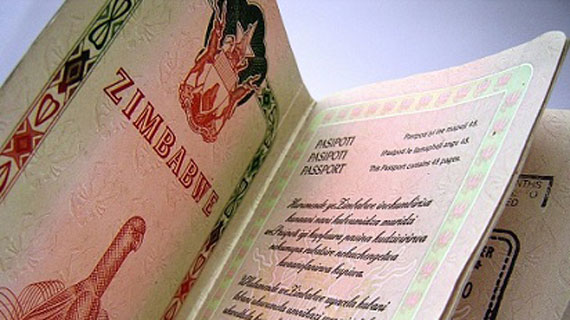
Throughout history countries have welcomed newcomers from all over the world. People from our country have moved to other countries too.
The contribution of immigrants has helped shape and define the country we know today. Each country has its own laws regarding how immigrants can attain residency.
However the question to be asked is what the legal process of those that want to attain citizenship of this country is.
First and foremost it must be emphasised that citizenship is a right and not a privilege to be granted, withheld or revoked at the pleasure of a minister neither is the right conferred by the Registrar-General nor does it depend on the holding of a “citizen” ID or Zimbabwean passport.
Many Zimbabweans have been deprived of their right to citizenship due to the misapplication of the requirement under the Zimbabwean law especially concerning the issue to renounce any foreign citizenship in order to retain Zimbabwean citizenship.
I will focus on what the right to citizenship is and what the new Constitution of Zimbabwe provides for this right and whether it is effective or not.
Citizenship is the status of a person recognised under the custom or law of the State that bestows on that person’s rights and duties of citizenship that may include the right to vote, work and live in the country, the right to return to the country, the right to own real estate and legal protection through the military or diplomacy.
A citizen may also be subject to certain duties such as duty to follow the country’s law, to pay taxes or to serve in the military.
- Chamisa under fire over US$120K donation
- Mavhunga puts DeMbare into Chibuku quarterfinals
- Pension funds bet on Cabora Bassa oilfields
- Councils defy govt fire tender directive
Keep Reading
Who is a citizen and what are the effects of the new Constitution? Section 35 of the new Constitution of Zimbabwe provides that there are three types of citizenships. The citizenship law has not been changed much by the new Constitution.
Citizenship by birth It entails that if you were born in Zimbabwe and your mother or father was a Zimbabwean citizen this makes you a citizen by birth. The new Constitution provides for this right in section 36 (1) (a).
You can also be a citizen by birth if you were born in Zimbabwe and neither of your parents was a Zimbabwean citizen, but either of your grandparents was a citizen by birth in section 36 (1) (b).
Citizenship by descent This type entails that you were born outside Zimbabwe and either your mother or your father was a Zimbabwean citizen, you are a citizen by descent if your parent who was a citizen normally lived in Zimbabwe or was working for the government or an international organisation.
If this is not the case and your parent or grandparent was a citizen by birth or by descent then you are a citizen by descent in Section 36 (2)
Citizenship is by registration If you have been married to a Zimbabwean citizen for at least five years you become a citizen by registration if you apply for citizenship and satisfy any conditions specified and prescribed in the citizenship of Zimbabwe act section 389 (1) or if you have lived in Zimbabwe for ten years and your application to be registered as a citizen has been accepted by the Home Affairs minister, you are a citizen by registration in section 38(2).
This ten-year period is fixed in the new Constitution whereas the Citizenship Act requires residence for only five years.
If you have been adopted as a child by a Zimbabwean citizen and you have applied for citizenship you become a citizen by registration in section 38 (3).
The Constitution has, however, made a few changes to citizen law.
It extended the period of residence required for citizenship from five years to ten years.
It also confers citizenship as an absolute birthright on people born in this country as well as permits citizens by birth to hold dual citizenship in section 42 (c).
Dual citizenship is when more than one country recognises you as a citizen, and this notion has been welcomed by many Zimbabweans living in the Diaspora especially in a bid to push for their right to vote during elections.
Many Zimbabweans have been deprived of their citizenship rights having to renounce foreign citizenship in order to retain Zimbabwean citizenship.
In a recent case brought by Farai Daniel Madzimbamuto who was denied citizenship for possessing a South African passport, judge Justice Vernanda Ziyambi said it is for the regulations (immigration laws) to be brought into conformity with the Constitution and not for the Constitution to conform to the regulations.
The Constitution is the supreme law of the land and any law inconsistent with it is deemed invalid in section two.
The Constitutional court case judgment is clear that the new Constitution recognises dual citizenship hence it is up to the legislature to align the laws in conformity with the new laws.
It is also up to the Registrar-General’s office to properly educate its staff of the change in the laws so that Zimbabweans are not continuously deprived of the rights.
Hlatshwayo is a member of the Abammeli Lawyers Network










